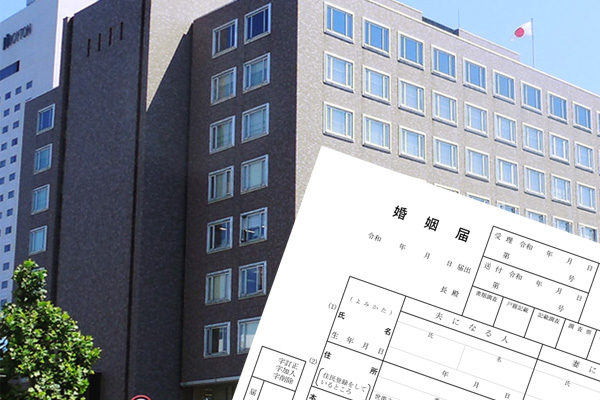On March 17, the Sapporo District Court issued a ruling on the same-sex marriage issue. Three male and one female couples failed to have their respective same-sex marriage registrations accepted by authorities because the Civil Code and the Family Register Act do not endorse such marriage. Contending that the Civil Code and the Family Register Act run counter to the principles of marital freedom and equality under the law that are guaranteed by the constitution, they filed a lawsuit with the Sapporo District Court in February 2019 seeking state compensation for the government’s failure to amend the two laws in line with the constitution.
As the court ruling rejected the compensation claim, the plaintiffs lost the lawsuit. Nevertheless, media reports emphasized the court decision that the failure to endorse same-sex marriage is unconstitutional, leaving impression that the plaintiffs won the lawsuit.
Unreasonable ground for unconstitutionality
While describing provisions of the Civil Code and Family Register Act that fail to endorse same-sex marriage as running counter to the constitution’s Article 14-1 providing for equality under the law, the ruling said that the National Diet cannot immediately be ruled as having neglected its duty of amending the laws and that any state compensation cannot be admitted.
While the plaintiffs and their supporters assert that they won as the court ruled the refusal to admit same-sex marriages is unconstitutional, the government cannot appeal the ruling because it did win the lawsuit.
The court’s ground for ruling the Civil Code and Family Register Act as unconstitutional is that marriage is not necessarily intersexual as shown in Western countries. Given that intersexual couples that cannot or do not have children are admitted in Japan, it said marriage is designed for intersexual couples not necessarily to produce children but to live together as wedded couples. Therefore, the court said, it is unreasonable to differentiate same-sex couples from intersexual couples. However, the main purpose of marriage should be to produce children through sexual contacts and sustain a family. Marriage is simply admitted if it happens to or is planned to produce no child. The court ruling thus represents a jump of logic.
Do not change the principle of marriage
Unlike in Western countries, marriage in Japan is based on the mutual consent of “both sexes” as provided in the constitution’s Article 24. In Western countries, same-sex sexual relations had been criminal. Partly because of the criminality, movements for endorsing same-sex marriages have emerged. In Japan, however, same-sex sexual relations have never been criminal even though it may not have been thought as normal. It is unreasonable for Japan to admit same-sex marriage as do Western countries.
Main legal disadvantages for same-sex couples may be limited to those related to inheritance. Any other disadvantages for same-sex couples can be resolved on a case-by-case basis. The fundamental principle of marriage between different sexes should not be changed.
Katsuhiko Takaike is an attorney-at-law and Vice President of the Japan Institute for National Fundamentals.


